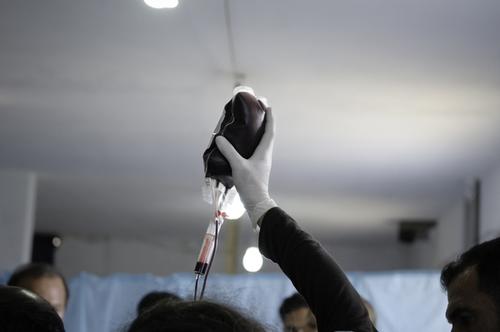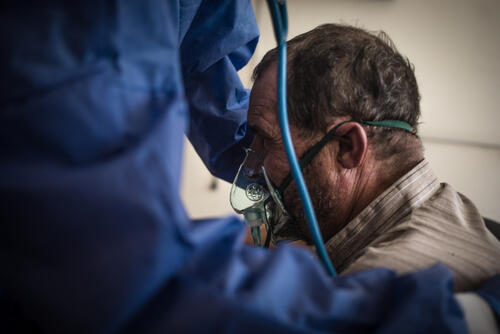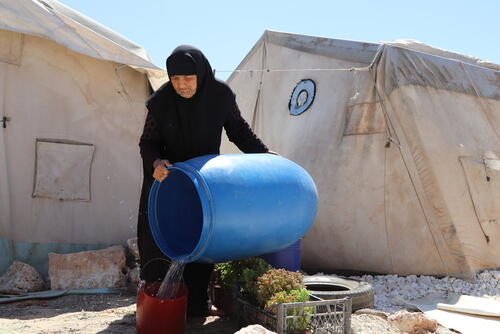Northwest Syria - On Saturday 11 December, 15 casualties were rushed to a hospital co-managed by Médecins Sans Frontières (MSF) following an airstrike in Idlib governorate, northwest Syria.
Eleven children under 14 years of age and two women were among the wounded; two people unfortunately died before reaching the hospital. A four-year-old patient was in critical condition.
“There were shrapnel wounds all over her small body,” said Dr Jihad Ismail*, MSF’s Medical Activity Manager, in describing the toddler’s injuries. “Our medical team managed to stabilise her, but it was still very shocking to see her injuries. The others had light to moderate injuries.”
It’s distressing to see children who have experienced nothing but conflict in their short lives, become not just witnesses but also direct victims of such violence.Dr Jihad Ismail*, MSF Medical Activity Manager
“This is not the first time we have dealt with a mass casualty influx in one of our co-managed hospitals in northwest Syria,” said Dr Ismail. “But it’s unusual to see so many children. In this instance some were as young as two. It’s distressing to see children who have experienced nothing but conflict in their short lives, become not just witnesses but also direct victims of such violence.”
The need to respond to medical emergencies such as mass casualty events or outbreaks of violence remains extremely high in northwest Syria, given the volatility of the situation. Despite a ceasefire being signed in March 2020, airstrikes and shelling continue on a regular basis.
MSF teams remain ready to respond, and we continue to monitor what is happening. When needed, we can increase our capacity to react during and after emergencies to attend to the needs of people.
People and the health system have already been severely impacted by over 10 years of conflict, and such influxes of casualties just illustrate how the need for lifesaving care in northwestern remains very high.
*name has been changed to protect identity.
Over the past decade of conflict, MSF has consistently readapted to the changing context in and around Syria to continue responding to growing humanitarian and medical needs in the country. This ranges from trauma and wound care, to maternal and child health services, as well as vaccination campaigns aimed at preventing the spread of deadly diseases.
MSF’s activities in Syria do not include government-controlled areas since our requests for permission to date have not resulted in any access. To ensure independence from political pressures, we receive no government funding for our work in Syria.





